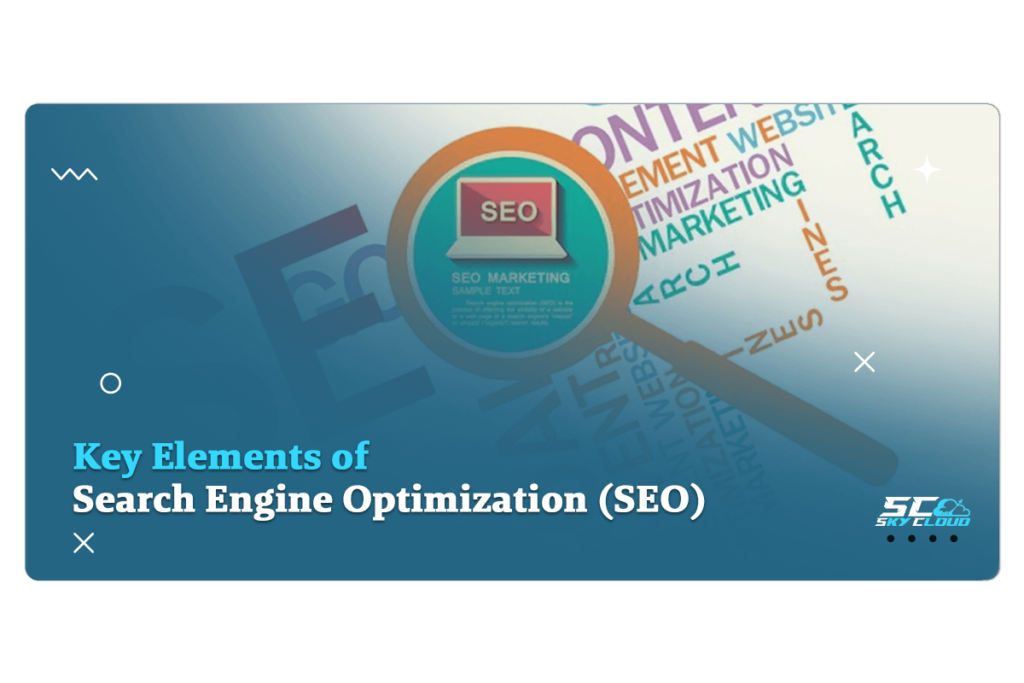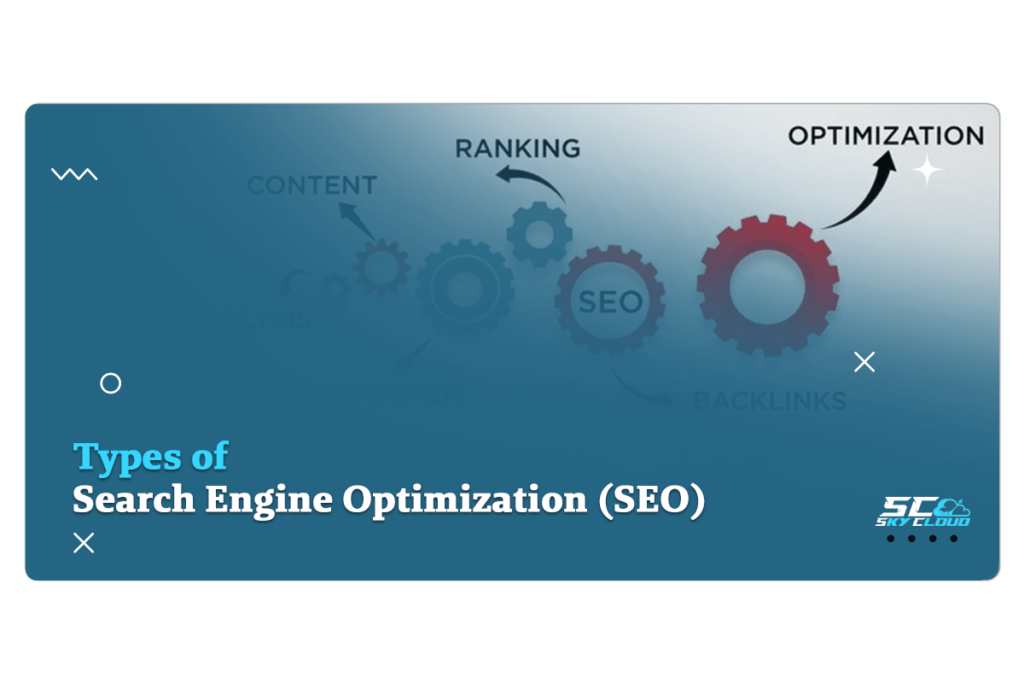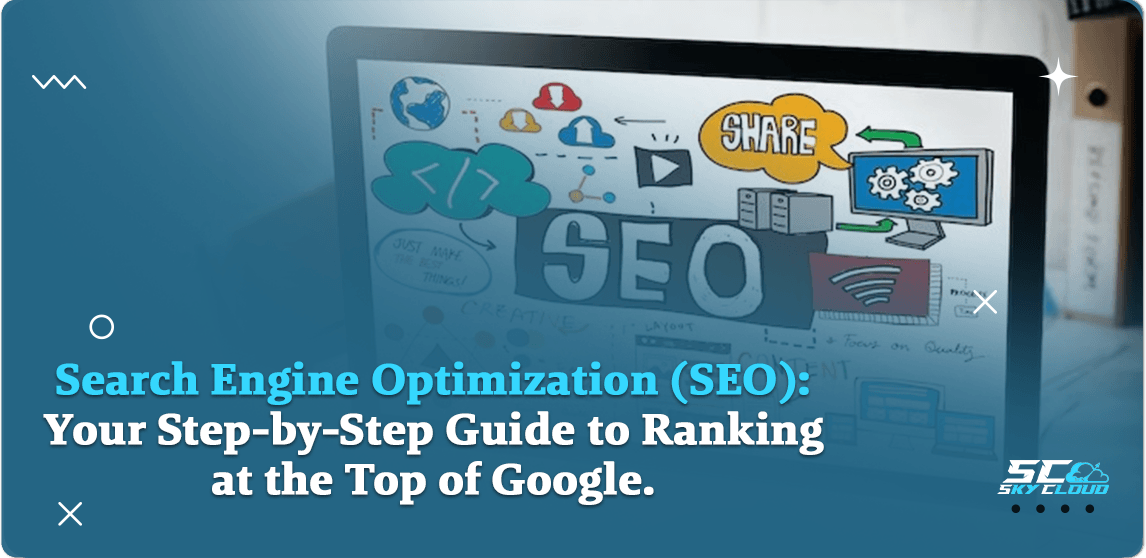search engine optimization (SEO) is a fundamental step that website owners rely on to appear on the first page of Google search results, as well as other major search engines. In today’s world, where the internet has become an inseparable part of users’ daily lives for finding information, products, and services, SEO has become a necessity that cannot be ignored.
The success of any website today depends on a deep understanding of how search engines work and how to improve both content and technical elements to enhance the site’s ranking in search results. Whether you own an online store or a service-based website, applying proper SEO strategies opens wider doors to reach your target audience and increase traffic.
In this article, we will cover the most important SEO concepts, explore effective ways to improve website rankings, and discuss strategies to help you stand out in search engine results.
What is search engine optimization (SEO)?
SEO, short for search engine optimization, is the process of modifying and improving a website’s content or structure to make it more understandable to search engines like Google. This allows search engines to read and comprehend the content better, categorize it, and display it in search results when users search for related keywords.
The main goal of SEO is to increase a site’s visibility in organic (unpaid) search results and reach a wider audience.

Key Elements of SEO:
1. Keywords
These are the words and phrases that users typically type into search engines when looking for a specific product or service. As part of search engine optimization, they should be naturally integrated into the content, descriptions, and headings to help improve visibility in search results.
2. Content Optimization
Creating valuable and well-structured content that meets visitors’ needs and answers their questions is an essential part of search engine optimization, increasing the chances of appearing in top search results.
3. Technical SEO
This includes factors like website speed, mobile responsiveness, and ease of navigation for both users and search engines. As part of search engine optimization, a well-organized structure with clear page and heading hierarchies improves user experience and helps search engines understand the site better.
4. Image Optimization
Compressing images to reduce file size, using clear filenames, and adding “alt text” (alternative descriptions) helps search engines understand the images and contributes to better search engine optimization.
5. Backlinks
Backlinks are links from other websites pointing to yours. They are one of the most important SEO ranking factors because they signal to search engines that your site is trustworthy and valuable—especially when they come from reputable sources.
The more high-quality backlinks you have, the better your chances of ranking higher in search results. However, quality is more important than quantity—links from weak or suspicious sites can hurt your ranking.
6. Mobile Friendliness
Since most users browse the internet on mobile devices, optimizing the mobile experience is crucial. A mobile-friendly site not only ensures better usability and engagement but also supports effective search engine optimization.
7. Proper Use of Headings (H1, H2, H3)
Organizing content with proper heading tags helps search engines understand the hierarchy and flow of information, improving SEO.
Why SEO Is Important
SEO is what makes your website appear on the first pages of Google and other search engines. It brings with it a range of benefits, including:
- Increased traffic: Ranking high in search results brings more visitors to your site without paying for ads.
- Attracting targeted users: People searching for specific terms are more likely to engage or make a purchase when your site appears.
- Building trust: Users tend to trust websites that appear at the top of search results, which strengthens your brand’s image.
- Better user experience: SEO involves creating a smooth, fast, and user-friendly browsing experience, encouraging visitors to stay longer.
- Outperforming competitors: Appearing ahead of your competitors in search results increases your chances of winning customers.
- Long-term results: Unlike paid advertising, SEO delivers lasting results that continue even if you stop spending money.
For more details on the importance of SEO and how to leverage it for your business, you can visit this link.
Types of SEO (Search Engine Optimization):
SEO can be divided into three main types, each playing a crucial role in helping your website appear at the top of search results:

1. On-Page SEO
This refers to everything you do within your website pages, such as:
- Writing helpful and easy-to-read content.
- Using keywords that people are actively searching for.
- Structuring and organizing headings properly on each page.
- Optimizing images and adding descriptive alt text.
- Ensuring the website is easy to navigate.
2. Off-Page SEO
This includes actions that happen outside your website but still affect its reputation and visibility, such as:
- Earning backlinks (links from other websites pointing to yours).
- Sharing your content on social media platforms.
- Gaining positive reviews and ratings from users.
3. Technical SEO
This focuses on the technical aspects of your website that help search engines crawl and understand it efficiently, including:
- Improving page loading speed.
- Offering a smooth mobile browsing experience.
- Creating and organizing an XML sitemap.
- Ensuring the site is free from technical errors.
To learn more about the types and importance of SEO, you can visit this link.
Frequently Asked Questions (FAQ):
1. Why is SEO important for any website?
Because it helps attract organic visitors without advertising costs, builds trust with users (people tend to trust websites that rank high), and increases the chances of conversions or engagement with your content.
2. What’s the difference between On-Page, Off-Page, and Technical SEO?
- On-Page SEO focuses on content and structure within the website.
- Off-Page SEO is about backlinks and external reputation.
- Technical SEO deals with site speed, mobile usability, and crawlability for search engines.
3. How long does it take for SEO to show results?
SEO doesn’t deliver instant results. It typically takes 3 to 6 months to see significant progress, depending on the competition and the quality of implementation.
For new websites or those targeting low-competition keywords, some improvements may appear within the first few weeks. However, if targeting competitive markets, it may take 6 to 12 months or longer to see stable results.
Consistency is key in SEO — every effort you make today contributes to long-term growth and visibility.
4. Do I need special tools to improve my site’s SEO?
Yes, there are both free and paid tools that can help, such as:
5. Is SEO only for large websites?
Not at all. That’s a common misconception.
SEO is essential for any website, regardless of its size or popularity. In fact, smaller websites may benefit the most from SEO, especially in the early stages of launching, since it helps them appear in search results without needing a huge marketing budget.




